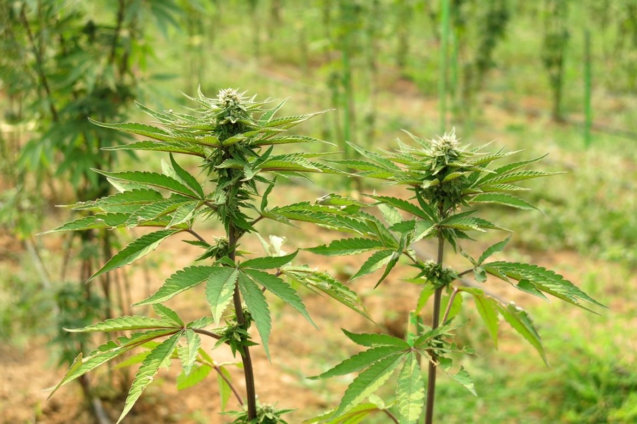Parliament has passed into law the Narcotics Control Commission Bill 2019, legalising the growing of some cannabis for health purposes.
The Narcotics Control Commission Bill, 2019 which transforms the Narcotics Control Board (NACOB) into a commission with enhanced powers was passed late Friday night.
It empowers the Minister for Interior in consultation with other institutions like Ministry of Health to grant licenses for the production of cannabis of not more than 0.3 per cent Tetrahydrocannabinol (THC) for industrial and medicinal purposes.
THC is one of the about 113 chemicals found in cannabis.
It, however, does not give a blanket license for the growing of cannabis in the country.
“It is illegal to grow or posses cannabis without a license. And also growing cannabis of more than 0.3 per cent THC (the one people smoke) remains illegal,” Kunbungu MP Ras Mubarak clarified after parliament approved the bill.
He urged members of the public to respect the law and desist from abusing it.
“Parliament hasn't legalized cannabis for smoking. Possession of cannabis without lawful authority remains illegal.
"What we have approved is a different strain of cannabis, and vastly different from recreational cannabis which has more than 0.3 THC. This is not a license to smoke,” Mr Mubarak cautioned.
“There are real concerns about abuse. What we have approved is not the type people smoke. So those who are worried can be rest assured.
"And the law provides for stiffer punishment for people who cultivate or possess without lawful authority,” he added.
“What we have approved is not recreational marijuana. It's important for people to understand the difference.
"As a country, we have to follow the science and numbers for the good of our country,” Mr Mubarak said.
The bill also gives the narcotics Control Commission the mandate to control and eliminate trafficking of prohibited narcotic drugs to ensure public safety and oversee the rehabilitation of people who become addicted to drugs.
The bill also ensures drug abuse will be treated as a public health issue and not only a law enforcement one.
The bill will now go to the president for assent before it becomes law.
Latest Stories
-
Bridging the skills gap: Ghana’s imperative shift towards TVET to combat graduate unemployment
1 hour -
Chief Imam calls for an end to Gaza atrocities in Eid-Al-Adha message
4 hours -
High Court restrains GRNMA from continuing with strike for 10 days
5 hours -
Bole gets new DVLA office
6 hours -
CCCFS applauds Mahama’s environmental pledges, urges stronger waste management measures
6 hours -
Uphold integrity in engineering – IET President charges newly inducted professionals
6 hours -
World Menstrual Hygiene Day: ofi distributes reusable sanitary pads with impactful celebrations at Konongo-Odumase SHS
7 hours -
Ukraine and Ghana to deepen cooperation in cybersecurity and digital innovation
7 hours -
Daily Insight for CEOs: Data-driven decision-making – A CEO’s edge in uncertainty
8 hours -
This Saturday on Newsfile: GH¢1 fuel levy and OSP declaring Ofori-Atta wanted again
8 hours -
Mahama announces steps to improve Islamic education nationwide
9 hours -
Eidul al-Adha: Drugs worse than alcohol – Imam Suleman warns Muslim youth
9 hours -
Fuel Levy: What crime have Ghanaians committed? – Dr Amin Adam questions gov’t
10 hours -
Postecoglou sacked by Spurs after Europa League win
11 hours -
Employee fraud is everywhere, be intentional about stopping it – Expert counsels
12 hours

